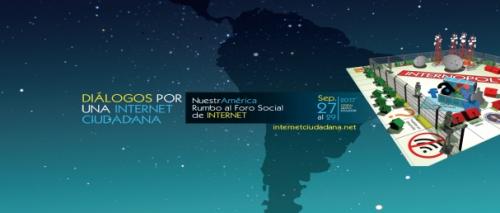Dialogues: The people’s internet, our data and the WTO
The data that we hand over in exchange for some apparently free services are the basic input of the new digital economy. As they are amassed and processed, they generate enormous wealth.
- Opinión

Every day new aspects of our lives incorporate digital technologies, with innovations that often make life easier or enable us to do things that were previously impossible. Thus the Internet is already much more than a space where we communicate and gather information. Yet at the same time, with every step that we take in the cybernetic world, we leave traces, knowingly or not.
These traces are data – of our identity, our tastes and interests, of our location and displacements, our habits and much more – which are the mana from heaven that feed the big business groups of the digital sector (not to speak of security agencies, criminal groups and others). In effect the data that we hand over in exchange for some apparently free services are the basic input of the new digital economy. As they are amassed and processed, they generate enormous wealth through their sale to advertisers or the development of services that incorporate algorithms and systems based on artificial intelligence.
In order to guarantee their hegemony in the digital economy, the large digital transnationals, now virtual monopolies, push their agenda, hand-in-hand with their governments, through free trade agreements (as they already did with the now abandoned Transpacific Partnership (TPP) and that of services (TISA) whose negotiation is suspended, although the texts of both are still alive) and now they are transferring it to the World Trade Organization, where they propose to open negotiations on “e-commerce” at the next ministerial meeting in Buenos Aires (December).
This corporate agenda, disguised under a discourse of “benefit for the development of SMEs”, in practice, would lead to greater technological, commercial and economic dependence of our countries, nullifying the possibility of regulating to benefit national interests or, more specifically, their citizens and the popular economy. It aims to ensure the free flow (extraction) of data, tax-free and with minimal regulations, without requirements of technological transfer, with no obligation to store data locally, nor consumer defense tribunals.
In the face of this exorbitant power of the large Internet monopolies, we need to ask: what happened to the people’s Internet? That sphere of innovation, creativity, new media, shared technologies and free spaces... In order to seek common answers to this question, the meeting “Dialogues for a People’s Internet: Our America towards the Internet Social Forum” was organized[1], in Quito (September 27-29, 2017). The Forum on Communication for the Integration (FCINA) was among the organizers. The meeting gave rise to a fruitful debate and produced a prolific range of proposals, both for people’s initiatives and for national and regional public policies, looking towards the global Internet Social Forum. We will underline two themes here: the call to join the mobilization to reject the proposal to negotiate e-commerce in the WTO; and the need to share information and to develop legal and other initiatives for the protection of our data.
For more information on the meeting and its follow up (mostly in Spanish) see: internetciudadana.net
- ALAI / editorial for the October Bulletin (in Spanish) of the Forum on Communication for the Integration of Our America – FCINA.
[1] Organizing committee: ALAI, FCINA, ALER, Pressenza, CORAPE, Medialab UIO.
Del mismo autor
- Los 100 de don Pablo 13/02/2022
- A social pact for education 17/03/2021
- Un pacto social por la educación 05/02/2021
- Forum social mondial virtuel 2021 19/01/2021
- Foro Social Mundial Virtual 2021 19/01/2021
- Virtual World Social Forum 2021 19/01/2021
- Julian Assange e o julgamento da liberdade de imprensa 12/01/2021
- Julian Assange and the trial against press freedom 05/01/2021
- Julian Assange y el juicio a la libertad de prensa 04/01/2021
- Ola Bini case: Judge denies annulment of trial 16/12/2020
Clasificado en
Libre Comercio
- José Ramón Cabañas Rodríguez 01/04/2022
- Jorge Murga Armas 31/03/2022
- Jorge Murga Armas 30/03/2022
- Lori Wallach 22/03/2022
- Néstor Araujo 22/03/2022
Internet ciudadana
- Nick Bernards 31/03/2022
- Paola Ricaurte 10/03/2022
- Burcu Kilic 03/03/2022
- Shreeja Sen 25/02/2022
- Internet Ciudadana 16/02/2022








